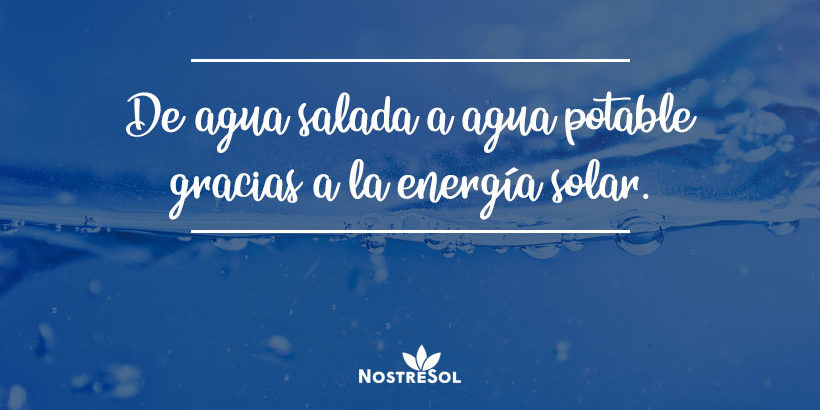Last August 10, it was publicly exhibited thanks to the journal Nature Sustainability, an innovative experiment that in just 30 minutes is able to convert salt water from the sea into drinking water thanks to sunlight.
But what is really interesting is that this conversion is achieved thanks to the energy that comes from the sun. This is why, unlike other projects that have emerged during history to this very end, with sustainable energy subtracted from the sun, costs are greatly reduced. In addition, it is a totally ecological process.
“We present a poly functionalized organic metal (MOF) frame (spiropirane acrylate) (PSP) as a solar-regenerable ion adsorbent for sustainable water desalination.” This is how the project has been presented by the group of researchers who lead it. It is carried out by several universities as a whole, including Monash University, Clayton, Victoria and Australia.
The group of researchers states that light-sensitive materials have a high absorption capacity and regenerability. These capabilities, activated by sunlight, make them much desired materials for their low-cost, environmentally friendly industrial separation processes.
These kind of initiatives are a great technological advance. In addition, they bring us closer to solving the problem in the face of the impossibility of obtaining drinking water, mainly in underdeveloped areas.
For now, it’s a project that still needs a tour to be affordable for the population. Still, we are confident that, in the future, betting on solar energy as the main source will be a resounding success for both us and the planet.

